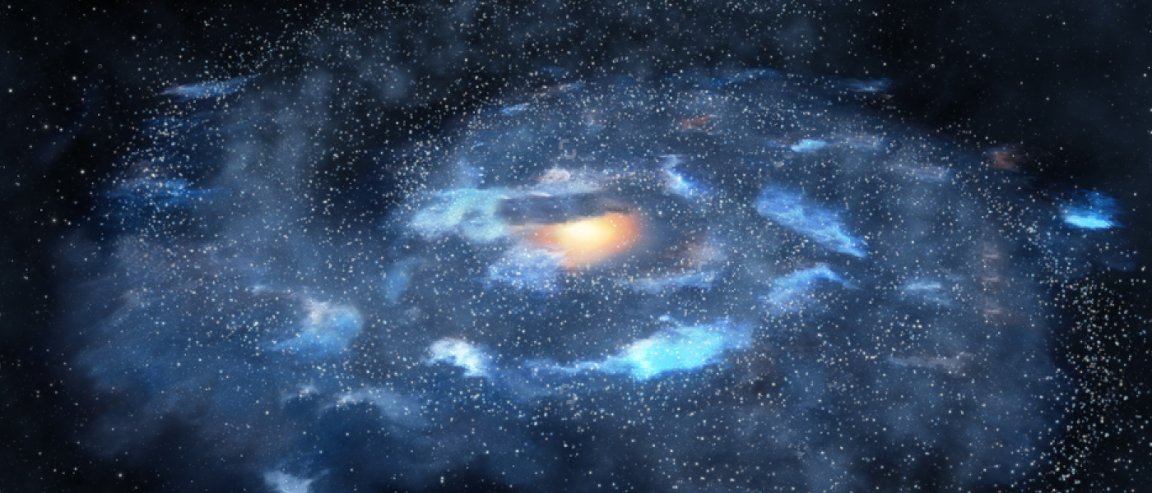
An Inflated Discussion
The players: 36 of the world’s top physicists. The arena: the entire cosmos, sort of. For physicists and cosmologists, the origin of the universe is proving to be a battle worth fighting over — or, more accurately, writing an angry letter about.
Back in February, three physicists sparked a debate within the scientific community by writing a controversial article criticizing the cosmic inflation theory. Now, 33 other physicists, including Stephen Hawking, Lisa Randall, Reiner Weiss, Frank Wilczek, and cosmologist Alan Guth — the author of the theory himself — have written an (angry) letter in defense of the theory. Both the original article and the response were published in Scientific American.
A quick refresher on the cosmic inflation theory. First proposed in 1980 by Guth, the theory describes how the universe quickly expanded after the Big Bang, producing galaxies from quantum fluctuations. Most people are familiar with the theory as it’s what’s taught in schools when discussing the origin of the universe.

In their article, Princeton physicist Anna Ijjas, Harvard astronomer Abraham Loeb, and physicist Paul Steinhardt — who is actually a former colleague of Guth — criticized some assumptions about the inflation theory, including recent studies on cosmic microwave background that don’t support cosmic inflation. They also pointed out that such an inflation should have generated primordial gravitational waves, but these are yet to be found.
“We should not just accept the assumption that inflation happened, especially because it does not offer a simple explanation of the observed features of the universe,” the trio wrote.
Testing theories over and over is a normal part of science, and no credible scientist would argue that questioning and scrutinizing assumptions is important. It was another part of the trio’s article that turned out to be highly debatable:
[I]nflationary cosmology, as we currently understand it, cannot be evaluated using the scientific method…Some scientists accept that inflation is untestable but refuse to abandon it. They have proposed that, instead, science must change by discarding one of its defining properties: empirical testability.
A Heated Response
That last bit was the kicker. Guth and the other 32 physicists heartily disagreed with the idea that the inflation theory couldn’t be tested with evidence and decided to voice their opinion on the trio’s accusations:
[The authors] close by making the extraordinary claim that inflationary cosmology “cannot be evaluated using the scientific method” and go on to assert that some scientists who accept inflation have proposed “discarding one of [science’s] defining properties: empirical testability,” thereby “promoting the idea of some kind of nonempirical science.”
We have no idea what scientists they are referring to.
Indeed, the ability to test a theory is an essential aspect of science. No real science is done by just wildly making and sticking by assumptions without testing them. Guth, Hawking, and the 31 other experts explain in their letter that the inflation theory hasn’t been blindly accepted by the scientific community. On the contrary, more evidence has come to light that tests the theory.
[infographic postid=”63669″][/infographic]
That’s is to be expected as our current understanding of the universe is limited. However, Guth and the other the authors assert that those limitations shouldn’t prevent us from exploring possibilities: “The fact that our knowledge of the universe is still incomplete is absolutely no reason to ignore the impressive empirical success of the standard inflationary models.”
“[A]s time passes, the successful [theories] become better and better established by improved experimental tests and theoretical advances. This has happened with inflation,” they argue. “Progress continues, supported by the enthusiastic efforts of many scientists who have chosen to participate in this vibrant branch of cosmology.”
This debate clearly shows one thing, though. As Guth and his 32 colleagues concluded: “Empirical science is alive and well!”